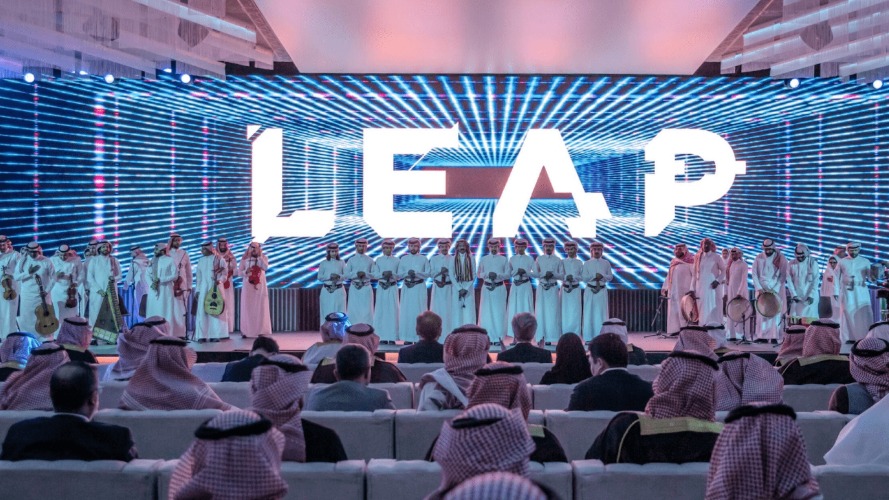The Middle East and North Africa (MENA) startup ecosystem is vibrant, attracting significant venture capital and government support. While entrepreneurial energy often gravitates towards cutting-edge sectors like Artificial Intelligence (AI) and blockchain technologies—with crypto startups alone constituting a notable 15% of active ventures in MENA as of April 2025 —a critical question arises: are we overlooking the foundational needs essential for sustainable economic growth? The persistent challenges within the MENA ecosystem, such as regulatory complexity, skills shortages, and the imperative for robust infrastructure, suggest that long-term prosperity may depend less on fleeting technological trends and more on steadfast, often unglamorous, solutions that address everyday problems. These are the “boring startups” that strategically focus on utilities, logistics, and core infrastructure.
The global technology landscape is inherently susceptible to hype cycles, and MENA is no exception. The promise of exponential growth and transformative impact associated with AI, crypto, and other frontier technologies acts as a powerful magnet for talent and capital. While these sectors possess immense potential, an excessive concentration on them risks neglecting the foundational areas indispensable for a well-functioning society and a resilient economy.
“Boring” startups seldom capture mainstream attention. They are enterprises diligently working behind the scenes, resolving unglamorous yet critical challenges of daily life and commerce. These innovators construct the digital and physical infrastructure that empowers other businesses to flourish, ensuring timely deliveries, reliable power and water access, and efficient waste management. While these endeavors may not generate viral buzz, they constitute the fundamental bedrock of modern prosperity.
The MENA region, characterized by rapid urbanization, a burgeoning young population, and an urgent need for economic diversification, is uniquely positioned for a new wave of “boring” startups. The opportunities within these foundational sectors are vast, with profound potential for impact.
As a pivotal global trade hub, MENA’s logistics infrastructure frequently suffers from fragmentation and inefficiency, creating substantial hurdles for businesses. “Boring” startups capable of streamlining supply chains, enhancing last-mile delivery, and developing more efficient cross-border logistics solutions are critically needed.
Colis.ma, a Moroccan startup, exemplifies this by bridging the logistics gap between Africa and Europe, providing reliable parcel delivery and connecting businesses to new markets. Repzo, a Jordanian company, offers a comprehensive field force management solution, enabling real-time tracking of sales and service teams, leading to significant improvements in efficiency and profitability. Furthermore, Swvl, an Egyptian-born, Dubai-headquartered startup, addresses urban transportation challenges through its shared mobility solutions, enhancing commuter lives, reducing traffic congestion, and lowering carbon emissions .
The MENA region, marked by its water scarcity and abundant solar resources, faces both a significant challenge and a unique opportunity. The challenge lies in securing a reliable and sustainable supply of water and energy for a rapidly expanding population. The opportunity, however, is to emerge as a global leader in renewable energy and water technology.
“Boring” startups are at the vanguard of this transformative shift. Yellow Door Energy (UAE) stands out as a premier provider of solar and energy efficiency solutions for commercial and industrial clients across the MENA region. By assisting businesses in transitioning to solar power, Yellow Door Energy not only curtails their energy expenditures but also helps them achieve their sustainability objectives. KarmSolar (Egypt) is another pioneering force in the renewable energy domain. This company has innovated solar-powered water pumping and desalination solutions, crucial for delivering clean water to remote communities. Similarly, Enerwhere (UAE) delivers solar-hybrid power solutions to off-grid industrial clients, thereby reducing their dependence on costly and environmentally detrimental diesel generators.
MENA is currently experiencing an unprecedented wave of urbanization, characterized by the rapid construction of new cities and mega-projects. This scenario presents an enormous opportunity for “boring” startups that can offer innovative solutions for the construction, management, and maintenance of urban infrastructure.
The construction industry in MENA is ripe for disruption. Opportunities abound for improving every facet, from project management and supply chain logistics to advanced building materials and construction techniques. Startups focusing on Construction Technology (ConTech) are revolutionizing how structures are designed, built, and maintained. This encompasses innovations in materials science that reduce environmental impact and enhance durability, as well as digital project management platforms that boost efficiency and cut costs. For example, companies developing modular construction methods can significantly accelerate building processes, while those offering predictive maintenance solutions for public utilities can avert costly failures and prolong the lifespan of critical assets.
Smart city technologies, often leveraging the very AI and IoT solutions that attract considerable hype, find their most practical and impactful applications within infrastructure. Envision intelligent traffic management systems that dynamically adapt to congestion, smart waste bins that optimize collection routes, or sensor networks that meticulously monitor water quality and detect leakages in aging pipe systems. These are not futuristic aspirations but present-day necessities. Startups are uniquely positioned to deliver agile, scalable solutions that larger, more bureaucratic entities often struggle to implement swiftly. The integration of data analytics into urban planning, for example, can lead to more informed decisions regarding resource allocation and infrastructure development, ultimately fostering more livable and sustainable cities.
While specific examples of MENA-based infrastructure tech startups beyond the initial construction and smart city planning phases are still emerging, the market opportunity is immense. The region’s unwavering commitment to developing future-proof cities creates a fertile ground for innovation in areas such as smart grids, sustainable building materials, and advanced urban mobility solutions. Companies that can provide effective solutions for efficient energy distribution, water recycling, and resilient public transport networks will undoubtedly be the true architects of MENA’s urban future.
The influence of “boring” startups extends far beyond their immediate clientele. By enhancing the foundational infrastructure of the economy, these companies generate a ripple effect that benefits a diverse array of industries and individuals. For instance, a more efficient logistics network not only empowers businesses to reduce costs and improve delivery times but also unlocks new opportunities for e-commerce and other online ventures. Similarly, a more reliable and affordable supply of energy and water significantly elevates the quality of life for residents and renders the region a more attractive destination for foreign investment.
Moreover, “boring” startups play a pivotal role in addressing some of the most pressing social and environmental challenges confronting the MENA region. Startups developing innovative solutions for waste management and recycling contribute directly to reducing pollution and conserving natural resources. Those promoting energy efficiency and renewable energy actively combat climate change. Furthermore, companies improving access to fundamental services like transportation and healthcare help to diminish inequality and enhance social inclusion, fostering a more equitable society.
From an investor’s standpoint, “boring” startups might not promise the same potential for explosive, headline-grabbing returns as their “hype” counterparts. However, they frequently represent a more stable and predictable investment. The demand for essential services such as logistics, utilities, and infrastructure is relatively inelastic, rendering these companies less vulnerable to the boom-and-bust cycles that often afflict more speculative sectors.
Crucially, “boring” startups typically possess a clearer and more direct path to profitability. They are generally focused on solving well-defined problems for specific customer segments, and their business models are often more straightforward and robust. This characteristic makes them a highly attractive investment for risk-averse investors who prioritize steady, long-term returns over speculative gains.
Finally, investing in “boring” startups offers investors a unique opportunity to align their financial objectives with their social and environmental values. By supporting companies that are making a tangible positive impact on the world, investors can not only generate a healthy financial return but also contribute meaningfully to a more sustainable and equitable future for the MENA region.
To fully realize the potential of a “boring” startup revolution in the MENA region, a concerted and collaborative effort from all stakeholders is indispensable. Governments, in particular, are tasked with a pivotal role. Their responsibilities include:
Streamlining Regulations: The existing regulatory complexity across various MENA countries remains a significant impediment for startups aspiring to achieve regional scalability. Harmonizing regulations pertaining to business registration, cross-border operations, and sector-specific permits (e.g., for energy or water management) can substantially reduce friction and stimulate investment in these often capital-intensive sectors.
Incentivizing Investment: While hype sectors frequently attract speculative capital, foundational sectors necessitate patient, long-term investment. Governments can strategically offer tax incentives, grants, and co-funding programs specifically tailored for startups addressing critical infrastructure, logistics, and utility needs. Public-private partnerships can further de-risk early-stage investments and provide crucial initial traction, fostering an environment conducive to growth.
Investing in Talent Development: The skills gap in emerging technology areas is widely acknowledged. However, foundational sectors equally demand specialized talent in engineering, operations, and project management. Educational institutions, in close collaboration with industry partners, should develop curricula that equip the workforce with practical skills directly relevant to these industries, including digital literacy for smart infrastructure management.
Creating Sandboxes and Testbeds: Establishing regulatory sandboxes or dedicated innovation zones for utilities and infrastructure can empower startups to rigorously test new technologies and business models within a controlled environment. This approach accelerates adoption and demonstrates viability without imposing immediate, full-scale regulatory burdens, thereby fostering innovation.
Investors, too, must expand their perspectives beyond the immediate glamour of consumer technology. Impact investing, which inherently seeks both financial returns and positive social/environmental impact, is a natural and ideal fit for “boring” startups. These ventures frequently offer stable, predictable returns and a clear trajectory to profitability, appealing to a different risk appetite than high-growth, high-burn startups. By concentrating on long-term value creation and societal impact, investors can uncover compelling opportunities in sectors that might otherwise be overlooked.
Accelerators and incubators also have a vital role in tailoring programs to specifically support these startups. This involves providing not only capital but also invaluable mentorship from seasoned industry veterans in logistics, energy, and urban planning. Such specialized guidance is crucial for navigating the inherent complexities of these sectors and effectively scaling solutions.
An ecosystem that is overly dependent on a few “hype” sectors is inherently vulnerable to market fluctuations and rapid technological shifts. The dot-com bubble of the early 2000s and more recent corrections in cryptocurrency markets serve as potent reminders of this inherent volatility. By strategically diversifying investment into foundational sectors, the MENA startup ecosystem can cultivate significantly greater resilience. Companies that are diligently solving real, tangible problems in essential services are inherently less susceptible to speculative bubbles and are far more likely to successfully navigate economic downturns.
Furthermore, a focused emphasis on these areas aligns seamlessly with the national visions for economic diversification and sustainable development articulated across the MENA region. Many governments are actively pursuing strategies to reduce their reliance on oil and gas, cultivate knowledge-based economies, and create more livable and sustainable cities. “Boring” startups are direct and indispensable contributors to these overarching strategic objectives, making them integral to the region’s long-term stability and prosperity.
The prevailing narrative surrounding startups often celebrates the disruptive, the flashy, and the rapidly growing. While these narratives are undoubtedly inspiring, the true and enduring strength of any economy resides in its foundations. The MENA region stands at a pivotal juncture, possessing immense potential for both growth and innovation. To fully realize this potential, it must wholeheartedly embrace the “boring” startups—the quiet revolutionaries who are meticulously building the essential infrastructure, optimizing critical logistics, and ensuring reliable utilities.
These are the companies that will not only generate substantial economic value but also directly address the fundamental needs of a rapidly developing region. By fostering an environment that genuinely values and robustly supports these foundational ventures, MENA can cultivate a startup ecosystem that is not merely dynamic and innovative but also profoundly resilient, equitable, and sustainable for generations to come. The future of MENA’s tech landscape may ultimately be defined not by the loudest voices or the most sensational trends, but by the steady, impactful, and indispensable work of its most “boring” entrepreneurs.






